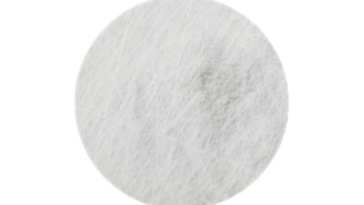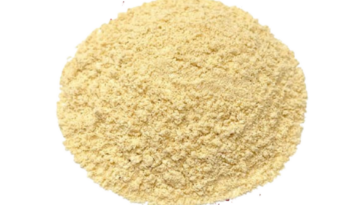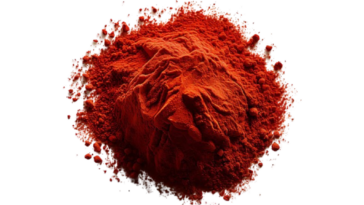Black pepper extract, derived from the fruit of the black pepper plant (Piper nigrum), has a rich history dating back thousands of years. Originating from the Western Ghats region of India, black pepper was highly prized in ancient times for its pungent flavor and medicinal properties. Its use can be traced back to the earliest civilizations of the Indian subcontinent, where it was not only a staple spice but also held sacred significance in religious ceremonies.
As trade routes expanded throughout history, black pepper became a valuable commodity traded along the Silk Road and other ancient trade networks. Its popularity spread to Europe, where it was highly sought after during the Middle Ages. The demand for black pepper was so intense that it played a significant role in the exploration and colonization of new territories, leading to the discovery of new trade routes and the establishment of spice empires. Today, black pepper extract remains a widely used ingredient in culinary dishes and herbal remedies, continuing a tradition that has spanned millennia.
Vitamins & Minerals:
Black pepper extract, derived from the black pepper fruit (Piper nigrum), contains several vitamins and minerals, albeit in small amounts. One prominent vitamin found in black pepper extract is vitamin K. Vitamin K is crucial for blood clotting, as it helps in the synthesis of proteins necessary for coagulation. Additionally, vitamin K plays a role in bone metabolism by aiding in the mineralization process, thus contributing to bone health. Although black pepper extract may not be a primary source of vitamin K in the diet, its inclusion can contribute to overall intake and support these essential bodily functions.
Another significant nutrient present in black pepper extract is manganese. Manganese serves as a cofactor for various enzymes involved in metabolism, antioxidant defenses, and bone development. It plays a vital role in the formation of connective tissues, such as cartilage and bone, contributing to skeletal health and wound healing. Manganese also participates in the regulation of blood sugar levels and the metabolism of carbohydrates, fats, and proteins. While black pepper extract may not provide a substantial amount of manganese compared to other food sources like nuts, seeds, and whole grains, its presence adds to the nutritional profile and may offer supplementary benefits to overall health.
Probiotic, Prebiotic, or Postbiotic:
Black pepper extract, derived from the fruit of the black pepper plant, is primarily known for its culinary uses and potential health benefits. While it’s not typically considered a probiotic, prebiotic, or postbiotic in the traditional sense, it may still influence gut health indirectly.
- Probiotic: Probiotics are live microorganisms that confer health benefits when consumed in adequate amounts. Black pepper extract itself doesn’t contain live microorganisms, so it isn’t a probiotic. However, black pepper extract may enhance the effectiveness of probiotics. Piperine, the active compound in black pepper, has been shown to improve the bioavailability of certain nutrients and drugs, potentially enhancing the absorption of probiotics in the gut.
- Prebiotic: Prebiotics are non-digestible fibers that stimulate the growth or activity of beneficial bacteria in the gut. While black pepper extract doesn’t contain prebiotic fibers, it may indirectly support the growth of beneficial gut bacteria. Studies have suggested that piperine possesses anti-inflammatory and antioxidant properties, which could create a favorable environment for the growth of beneficial gut bacteria.
- Postbiotic: Postbiotics are metabolic byproducts of probiotic bacteria or substances released by food components that have a beneficial effect on the host. While black pepper extract itself isn’t a postbiotic, it may indirectly support the production of postbiotics. By enhancing the absorption of nutrients and potentially promoting a healthy gut environment, black pepper extract may contribute to the production of beneficial postbiotic compounds by gut bacteria.
In summary, while black pepper extract isn’t a probiotic, prebiotic, or postbiotic in the traditional sense, it may indirectly support gut health through various mechanisms, such as enhancing the absorption of nutrients, promoting a healthy gut environment, and potentially influencing the growth of beneficial gut bacteria. However, more research is needed to fully understand the extent of its effects on gut microbiota.
Dietary & Health Information:
Black pepper extract, derived from the fruit of the black pepper plant (Piper nigrum), is renowned for its culinary uses as a spice enhancer and its potential health benefits. Here’s a breakdown of its dietary and health information, including recommended daily intake:
- Nutritional Profile: Black pepper extract is low in calories and is not a significant source of macronutrients like carbohydrates, proteins, or fats. However, it does contain small amounts of essential nutrients such as vitamins and minerals.
- Biologically Active Compounds: The health-promoting properties of black pepper extract are primarily attributed to its bioactive compounds, especially piperine. Piperine is known for its antioxidant, anti-inflammatory, and potential digestive health benefits.
- Health Benefits:
- Antioxidant Properties: Piperine exhibits antioxidant activity, which helps to combat oxidative stress and reduce the risk of chronic diseases.
- Anti-inflammatory Effects: Studies suggest that piperine may possess anti-inflammatory properties, which could be beneficial for conditions associated with inflammation, such as arthritis.
- Enhanced Nutrient Absorption: Piperine has been shown to enhance the absorption of certain nutrients, such as curcumin (the active compound in turmeric), when consumed together.
- Potential Weight Management: Some research indicates that piperine may aid in weight management by increasing metabolism and reducing fat accumulation. However, more studies are needed to confirm these effects.
- Recommended Daily Intake: The recommended dosage of black pepper extract or its active compound piperine can vary depending on the specific health goals and the form of supplementation (capsules, extracts, etc.). However, a typical recommended dosage for black pepper extract containing standardized piperine is around 5-10 mg per day, although higher doses may be used under medical supervision for certain purposes.
- Precautions: While black pepper extract is generally safe for most people when consumed in culinary amounts, concentrated forms of piperine supplements may cause side effects in some individuals, such as gastrointestinal discomfort or interactions with certain medications. Pregnant or breastfeeding women, as well as individuals with pre-existing medical conditions, should consult with a healthcare professional before starting supplementation.
In summary, black pepper extract, particularly its active compound piperine, offers potential health benefits, including antioxidant and anti-inflammatory effects, as well as enhanced nutrient absorption. However, it’s essential to consume it in moderation and consult with a healthcare provider for personalized recommendations, especially when considering supplementation with concentrated forms of piperine.




 No products in the cart.
No products in the cart.